
This page lays out the 1936 Constitution of the USSR.
- Subject:
- Government
- Social Studies
- Material Type:
- Activity/Lab
- Homework/Assignment
- Author:
- Bucknell University
- Robert Beard
- Date Added:
- 05/03/2020

This page lays out the 1936 Constitution of the USSR.

New activities designed specifically for the 2019-2020 school year spotlight the 2020 Census and the importance of making sure everyone is counted, especially children. The decennial count impacts the federal funds that communities receive for special education, classroom technology, teacher training, after-school programs, school lunch assistance, and more. PreK-grade 12.
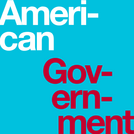
American Government is designed to meet the scope and sequence requirements of the single-semester American government course. This title includes innovative features designed to enhance student learning, including Insider Perspective features and a Get Connected Module that shows students how they can get engaged in the political process. The book provides an important opportunity for students to learn the core concepts of American government and understand how those concepts apply to their lives and the world around them. American Government includes updated information on the 2016 presidential election.Senior Contributing AuthorsGlen Krutz (Content Lead), University of OklahomaSylvie Waskiewicz, PhD (Lead Editor)











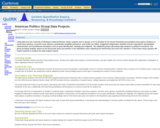
SETUPS (Empirical Teaching Unites in Political Science) data, published by the American Political Science Association, will be employed in group data analysis projects in an American Government class. Students then use results from these reports in composing an essay question on the course's final exam.

Students conducted data analysis about American political divisions and created two papers from this data analysis. Sutdents were assigned to group projects involving data analysis assigned chapters in MICROCASE AMERICAN GOVERNMENT, a textbook that includes access to a variety of datasets.
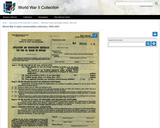
World War II ration memorabilia collection, 1942-1947.
The Office of Price Administration and Civilian Supply was established by Presidential Executive Order 8734 on April 11, 1941, in an effort to control inflation. The civilian supply function of the agency was transferred to the Office of Production Management in August of 1941 and the name was shortened to the Office of Price Administration (OPA). The Emergency Price Control Act (January 30, 1942) established the purposes of the agency as follows: to stabilize prices and rents and prevent unwarranted increases in them; to prevent profiteering, hoarding and speculation; to assure that defense appropriations were not dissipated by excessive prices; to protect those with fixed incomes from undue impairment of their living standards; to assist in securing adequate production; and to prevent a post-emergency collapse of values." The OPA fixed price ceilings on all commodities except farm products and controlled rents in defense areas. The first rationing program, for automobile tires, was initiated December 27, 1941. There were two types of rationing programs. The first was a certificate program, where an applicant had to meet eligibility standards and show need to a local ration board before receiving a certificate permitting purchase of the rationed item. This type of program was applied to ties, automobiles, typewriters, bicycles, rubber footwear and stoves. The second program was a coupon or stamp type for which all civilians were eligible. These programs were administered through local banks and covered foods, fuel oil, gasoline and shoes. Rationing continued throughout World War II and by the end of November 1945 only the sugar and rubber tire rationing programs remained. Tire rationing ceased on December 31, 1945. Sugar rationing continued until June 11, 1947. The Office of Price Administration was dissolved April 1, 1947.
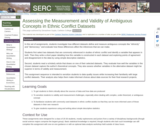
This assignment introduces students to commonly used datasets in ethnic conflict studies. It also encourages them to think critically about data quality and measurement challenges when using large datasets.
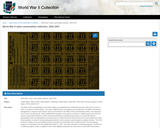
World War II ration memorabilia collection, 1942-1947.
The Office of Price Administration and Civilian Supply was established by Presidential Executive Order 8734 on April 11, 1941, in an effort to control inflation. The civilian supply function of the agency was transferred to the Office of Production Management in August of 1941 and the name was shortened to the Office of Price Administration (OPA). The Emergency Price Control Act (January 30, 1942) established the purposes of the agency as follows: to stabilize prices and rents and prevent unwarranted increases in them; to prevent profiteering, hoarding and speculation; to assure that defense appropriations were not dissipated by excessive prices; to protect those with fixed incomes from undue impairment of their living standards; to assist in securing adequate production; and to prevent a post-emergency collapse of values." The OPA fixed price ceilings on all commodities except farm products and controlled rents in defense areas. The first rationing program, for automobile tires, was initiated December 27, 1941. There were two types of rationing programs. The first was a certificate program, where an applicant had to meet eligibility standards and show need to a local ration board before receiving a certificate permitting purchase of the rationed item. This type of program was applied to ties, automobiles, typewriters, bicycles, rubber footwear and stoves. The second program was a coupon or stamp type for which all civilians were eligible. These programs were administered through local banks and covered foods, fuel oil, gasoline and shoes. Rationing continued throughout World War II and by the end of November 1945 only the sugar and rubber tire rationing programs remained. Tire rationing ceased on December 31, 1945. Sugar rationing continued until June 11, 1947. The Office of Price Administration was dissolved April 1, 1947.

Undergraduate student project for building datasets and analyzing the electoral, party system, and mass behavioral characteristics for a set of countries.